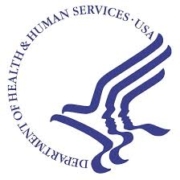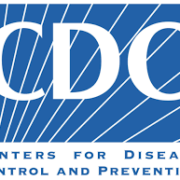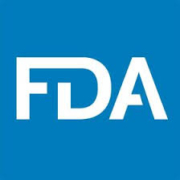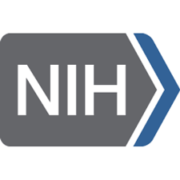The following is the latest health policy news from the federal government as of 3:00 p.m. on Monday, January 24. Some of the language used below is taken directly from government documents.
 Provider Relief Fund
Provider Relief Fund
- The reconsideration window for Provider Relief Fund Phase 4 payments and American Rescue Plan rural hospital payments will open on February 1, 2022, at which time providers will be able to request reconsideration of their payments. This process is intended only for providers that believe their payment was not calculated correctly. They will not have an opportunity to submit an application if they missed a deadline; will not be able to revise or correct their original application; and will not be able to request reconsideration that would require a change to payment methodology or policy. Learn more from this Provider Relief Fund web page.
White House
- The White House has posted a transcript of the January 21 press briefing given by its COVID-19 response team and public officials. Go here to see the slides presented during the briefing.
Centers for Medicare & Medicaid Services
COVID-19
- CMS has published an FAQ on its enforcement of its requirement that health care workers that serve Medicare and Medicaid patients be vaccinated against COVID-19. The FAQ includes a state-by-state list of vaccination deadlines.
 Department of Health and Human Services
Department of Health and Human Services
COVID-19 Update
- HHS and its Health Resources and Services Administration (HRSA) have awarded $103 million in grants to improve the retention of health care workers and help respond to the nation’s critical staffing needs by reducing burnout and promoting mental health and wellness among the health care workforce. These awards will fund evidence-informed programs, practices, and training, with a specific focus on providers in underserved and rural communities. These grants were awarded to 45 entities through three HRSA programs: Promoting Resilience and Mental Health Among Health Professional Workforce; Health and Public Safety Workforce Resiliency Training Program; and the Health and Public Safety Workforce Resiliency Technical Assistance Center. Learn more about the grant funding and how the money will be used and find a link to a list of grant recipients in this HHS news release.
Health Policy Update
- HHS has awarded $6.6 million through the Title X family planning program to address the need for family planning services where restrictive laws and policies have affected access to reproductive health services. These competitively awarded grants were made to entities in seven states. Learn more about the program, how the funding will be used, and to whom it was awarded from this HHS news release.
- In support of this objective, HHS has launched an agency-wide task force, the HHS Reproductive Healthcare Access Task Force, that consists of senior-level HHS officials who have been designated by their respective agencies to identify and coordinate activities across the department to protect and bolster access to essential sexual and reproductive health care, including implementation of activities identified in the White House National Strategy on Gender Equity and Equality. The working group activities will focus on advancing quality, access, and equity for reproductive health, rights, and justice and include coordinating federal interagency policy-making, program development, and outreach to address barriers affecting individuals and communities seeking reproductive health care. Learn more about the work the task force is expected to undertake from this HHS news release and from this HHS statement.
- HHS’s Office of the National Coordinator for Health Information Technology (ONC) has released a Request for Information (RFI) seeking input from the public on electronic prior authorization standards, implementation specifications, and certification criteria that could be adopted within the ONC Health IT Certification Program. Responses to this RFI may be used to inform potential future rulemaking to better enable providers to interact with health care plans and other payers for the automated, electronic completion of prior authorization tasks. Learn more from this HHS news release and the RFI itself. Stakeholder comments are due March 25.
- HHS’s Agency for Healthcare Research and Quality (AHRQ) has published a data brief on the most frequent reasons for emergency department visits in 2018. Find it here.
 Centers for Disease Control and Prevention
Centers for Disease Control and Prevention
- The CDC has updated its strategies for mitigating health care worker shortages amid the COVID-19 emergency to enhance protection for health care workers patients, and visitors and to address concerns about potential effects on the health care system in light of the recent surge in COVID-19 cases. It also has included an updated infographic that links to CDC’s latest definition of what it means to be up to date with all recommended vaccine doses.
- The CDC has updated its guidance for managing health care workers who have been exposed to or infected with the COVID-19 virus with updated information on what constitutes being up to date on vaccinations and to reflect changes in standards that now state that asymptomatic health care workers who have recovered from a COVID-19 infection in the prior 90 days do not require work restriction following a higher-risk exposure.
- The CDC has updated its explanation of quarantine and isolation for people who have COVID-19 or have been exposed to people with the virus. The update explains the differences between isolation and quarantine and when and how they should be used.
- The CDC has updated its guidance for health care providers on antigen testing for COVID-19. This guidance is intended for health care providers who order antigen tests, receive antigen test results, or perform point-of-care testing and for laboratory professionals who perform antigen testing in a laboratory setting or at the point of care and report those results. The stated purpose of this interim technical guidance is to support effective clinical and public health use of antigen tests for different testing situations.
- The CDC has updated its guidance for COVID-19 antibody testing, adding information for people who are up to date with their vaccines and quarantine and isolation recommendations.
- The CDC has updated its guidance for general laboratory safety practices during the COVID-19 pandemic to align with CDC recommendations for people who are up to date with their vaccines.
- The CDC has updated its overview of testing for COVID-19 to align with its recommendations on isolation and quarantine and its recommendations for people who are up to date with their vaccines.
- The CDC has updated its guidance on use of the Johnson & Johnson COVID-19 vaccination. The update explains why the CDC now prefers the Pfizer and Moderna vaccines over the Johnson & Johnson vaccine for people 18 years of age and older.
- The CDC has published research showing that more recent doses of COVID-19 vaccines and boosters increased the effectiveness of protection against the delta and omicron variants and reduced the need for those who did contract the virus to seek care at urgent care facilities and hospital emergency departments and to need hospitalization. Go here to see the CDC report.
- In an analysis that encompassed 25 jurisdictions, a CDC study found that decreases in case incidence rate ratios for unvaccinated versus fully vaccinated persons with and without booster vaccine doses were observed when the omicron variant emerged in December 2021. Protection against infection and death during the delta-predominant period against infection during omicron emergence were higher among booster vaccine dose recipients, and especially among persons aged 50–64 and those over 65. The analysis found that unvaccinated adults were three to five times more likely to be infected by the omicron variant. Go here to see the CDC’s findings.
- The CDC has updated its information about COVID-19 vaccines for people who would like to have a baby.
- The CDC has updated its information about wearing masks to protect against the transmission of COVID-19: when to wear a mask, how to choose the right mask, how to wear, put on, and take off a mask, how to help people with special needs with their masks, and how to clean cloth masks.
- The CDC has published a brief summary of its research into the presence of the COVID-19 omicron variant in community wastewater at a limited number of test sites. See its findings here.
 Food and Drug Administration
Food and Drug Administration
- The FDA has revised the authorizations for two monoclonal antibody treatments – bamlanivimab and etesevimab (administered together) and REGEN-COV (casirivimab and imdevimab) – to limit their use to only when the patient is likely to have been infected with or exposed to a variant that is susceptible to these treatments. Recent data shows that these treatments are highly unlikely to be active against the omicron variant. Learn more from this FDA statement.
- The FDA has taken two actions to expand the use of the antiviral drug Veklury (remdesivir) to certain non-hospitalized adults and pediatric patients for the treatment of mild-to-moderate COVID-19 disease. Those actions are:
- The agency expanded the approved indication for remdesivir to include its use in adults and pediatric patients (12 years of age and older who weigh at least 88 pounds) with positive results of direct COVID-19 testing, are not hospitalized, have mild-to-moderate COVID-19, and are at high risk for progression to severe COVID-19, including hospitalization or death.
- It revised its emergency use authorization for remdesivir to authorize the drug for treatment of pediatric patients weighing 3.5 kilograms to less than 40 kilograms or pediatric patients less than 12 years of age weighing at least 3.5 kilograms, who have tested positive for COVID-19, who are not hospitalized and have mild-to-moderate COVID-19, and who are at high risk for progression to severe COVID-19, including hospitalization of death.
Learn more from the following resources:
– revised prescribing information for remdesivir;
– the revised emergency use authorization for the drug; and
– a revised FDA FAQ on remdesivir.
- The FDA has updated its device shortage list to include all blood specimen collection tubes (product codes GIM and JKA) to the testing supplies and equipment/specimen collection category on the device shortage list. The list previously included sodium citrate (light blue top) tubes only. The device shortage list reflects the categories of devices the FDA has determined to be in short supply at this time. The FDA has published an FAQ explaining the shortage and its decision.
 National Institutes of Health
National Institutes of Health
- COVID-19 was initially identified as a respiratory virus but it can affect the entire body, including the nervous system, and this has implications for patients with long COVID, according to the NIH. Learn more from this NIH news release.
- COVID-19 vaccination does not affect the chances of conceiving a child, according to a study of more than 2000 couples that was funded by the National Institutes of Health. Researchers found no differences in the chances of conception if either male or female partner had been vaccinated, compared to unvaccinated couples, but it did find that couples had a slightly lower chance of conception if the male partner had been infected with COVID-19 within 60 days before a menstrual cycle, suggesting that COVID-19 could temporarily reduce male fertility. Learn more from this NIH news release.
- Survey data of more than 3000 adolescents ages 11-14 recorded before and during the early months of the COVID-19 pandemic in 2020 found that supportive relationships with family and friends and healthy behaviors, like engaging in physical activity and better sleep, appeared to shield against the harmful effects of the pandemic on adolescents’ mental health. Learn more from this NIH news release.
Medicaid and CHIP Payment and Access Commission (MACPAC)
- MACPAC has posted a summary of its January 21-22 public meetings and provided links to the presentations made during those meetings. Find them here.
Congressional Budget Office (CBO)
- The CBO has examined potential reasons that the prices paid by commercial health insurers for hospitals’ and physicians’ services are higher, rise more quickly, and vary more by area than the prices paid by the Medicare fee-for-service program. Its findings are presented in the new CBO report “The Prices That Commercial Health Insurers and Medicare Pay for Hospitals’ and Physicians’ Services.”
Stakeholder Events
NIH National Institute of Nursing Research – January 25
NIH’s National Institute of Nursing Research, which supports basic and clinical research that seeks to establish a scientific basis for the care of individuals, will hold an open session of its National Advisory Council for Nursing Research on January 25 at 11:00 a.m. For a meeting agenda and information on how to view the meeting, go here.

 Provider Relief Fund
Provider Relief Fund Department of Health and Human Services
Department of Health and Human Services Centers for Disease Control and Prevention
Centers for Disease Control and Prevention Food and Drug Administration
Food and Drug Administration National Institutes of Health
National Institutes of Health